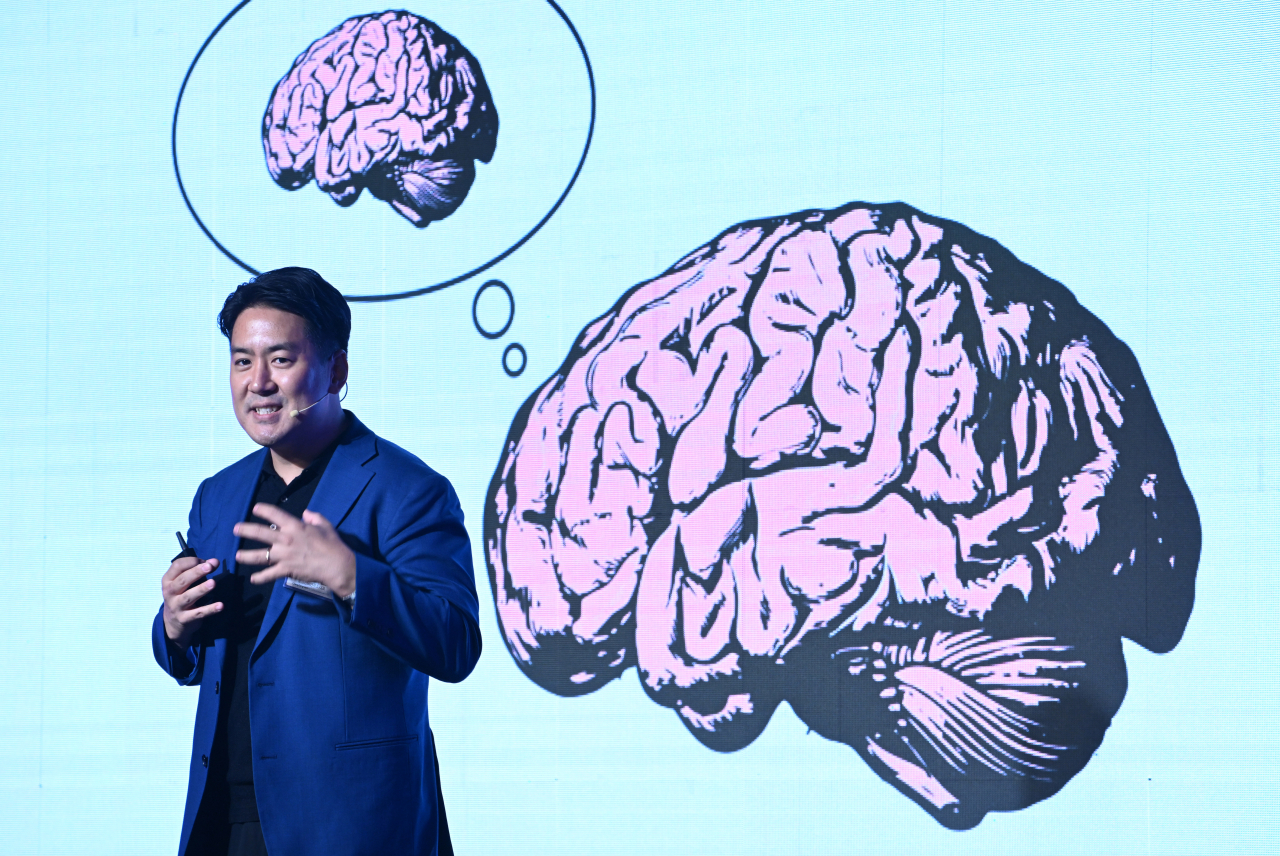[KH Biz Forum] 'Science communicator’ underscores human connection
By Kim So-hyunPublished : Oct. 19, 2022 - 15:31

Mammals survived because their social ability to get information from other beings evolved. An animal cub may not know that a volcano has erupted, but once it sees other animals run in fear, it feels their fear and knows that it has to run with them to survive.
Human children start to acquire social intelligence by reading non-linguistic signs such as other humans’ facial expressions, gestures and actions, in addition to learning language. Human brains have the ability to understand and empathize with other human brains, and when a brain sees or hears a story, its neurons fire in the same patterns as the speaker’s brain. This is known as neural coupling, where “mirror neurons” create coherence between a speaker’s brain and the brains of his or her audience members.
“For example, when you see (soccer player) Son Heung-min run in a game for 90 minutes, you’re not running but the same part of your brain (as Son) is activated,” said Chang Dong-seon, CEO of Curious Brain Lab, said during his speech titled “Future of human connection” at The Korea Herald Biz Forum, held in Seoul on Wednesday.
“So together, human brains can perform like an orchestra. We’re all individual brains, but like different instruments in an orchestra, we can play the same music and create harmony.”
Chang, whose expertise lies in cognitive and behavioral sciences, spoke about cultural evolution -- a concept that credits human development with people-to-people exchanges through language and behavior in the name of culture, rather than biological evolution or a change in traits over successive generations.
This is based on the idea that the speed of delivering new information from a human brain to another human brain through language, behavior and culture is much faster than the speed of passing on information via genes to the next generation, Chang said.
“Say, there are 200 people stuck on an island or 200 people isolated in an apartment building due to some disaster. You’re likely to see all kinds of human skills distributed within those 200 people,” he said.
“For the past tens of thousands of years, the human brain has barely changed. So, what is important now is the connection between people, communities, groups, and how these connections and interactions among people will be designed.”
In the future, the metaverse will be used as a new space for communication, allowing people to learn from experts or creators through their avatars, for instance, while artificial intelligence, blockchain and neuroscience technology will play a new role in transferring knowledge and information from one brain to another, he said.
After obtaining a Ph.D for his research on human perception and behavior from the Max Planck Institute for Biological Cybernetics and University of Tubingen in Germany, Chang appeared as a “science communicator” on cable channel tvN’s “Dictionary of Useless Knowledge 2” in 2017. He then worked at Hyundai Motor as the mobility UX (user experience) lead of its future mobility development team. In 2020, he founded Curious Brain Lab, where he is creating various content on science including neuroscience.
By Kim So-hyun (sophie@heraldcorp.com)






![[From the Scene] Monks, Buddhists hail return of remains of Buddhas](http://res.heraldm.com/phpwas/restmb_idxmake.php?idx=644&simg=/content/image/2024/04/19/20240419050617_0.jpg&u=20240419175937)





![[Graphic News] French bulldog most popular breed in US, Maltese most popular in Korea](http://res.heraldm.com/phpwas/restmb_idxmake.php?idx=644&simg=/content/image/2024/04/18/20240418050864_0.gif&u=)



![[From the Scene] Monks, Buddhists hail return of remains of Buddhas](http://res.heraldm.com/phpwas/restmb_idxmake.php?idx=652&simg=/content/image/2024/04/19/20240419050617_0.jpg&u=20240419175937)

![[KH Explains] Hyundai's full hybrid edge to pay off amid slow transition to pure EVs](http://res.heraldm.com/phpwas/restmb_idxmake.php?idx=652&simg=/content/image/2024/04/18/20240418050645_0.jpg&u=20240419100350)

![[Today’s K-pop] Illit drops debut single remix](http://res.heraldm.com/phpwas/restmb_idxmake.php?idx=642&simg=/content/image/2024/04/19/20240419050612_0.jpg&u=)